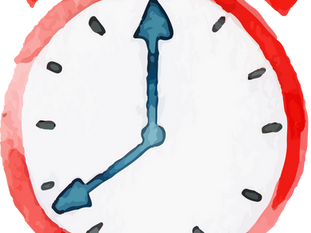

That is the question. Many job applications ask the applicant to declare whether they identify as having a disability. This is voluntary but it always leaves me wondering, what's the best move?
Some are a yes/no tick box with a statement like, 'Do you identify as a person with a disability and/or are there reasonable adjustments you need to participate in the application or interview process?'
Others are much more detailed:

Until recently I always ticked 'no' and moved on. I don't think of myself as having a disability and yet there are several items on the list above that I currently or previously live with. I wonder what impact choosing to declare or not has on the application. Does ticking 'no' mean I'm more likely to get an interview? Or, does the organisation want to increase diversity or meet a target? In which case ticking 'yes' might be beneficial. I tie myself in knots trying to second-guess what the hiring manager or HR might be thinking about a person with a disability.
The list above is so long and open-ended ('disabilities include but are not limited to...') that huge numbers of people would be eligible to choose 'yes'. The adjustments I need tend to impact day-to-day work (leave when I get a migraine or flexibility around attending medical appointments) rather than during the application process or interview. The challenges that I live with are quite common in the general population (19% with anxiety or depression, 23% with migraine while 7.6% of those are chronic), 15% with chronic back/joint pain). However, according to the Australian Bureau of Statistics, just over 21% of the population have a disability, but only 48% of people with a disability are employed. That makes it feel risky to declare a disability before getting a job offer.
But then I think about the social definition of disability which says, 'people are disabled by barriers in society, such as buildings not having a ramp or accessible toilets, or people’s attitudes, like assuming people with disability can’t do certain things' (Australian Federation of Disability Organisations). There is also the argument that if everyone who could tick at least one of the items on the list above were to do so, maybe organisations and society would be more representative and inclusive. It would bring our true diversity to light and it might mean fewer people masking to fit in.
A common caveat to declaring 'yes, I have a disability' is the advice that employers can't ask you what the disability is. I don't know if that's useful or not. Why ask about the existence of a disability if you're just going to assume or wonder what it is? I think employers (both for current and prospective employees) should be clear and transparent about why they are asking people to declare, follow-up with a question about how the workplace could be changed or improved to help do the job, and then follow through on those requests.
For teachers, there's the added layer of being a role model and, to a greater or lesser degree, an authority figure to students. Will it be beneficial to yourself, your students or society at large to declare your disability? What will the students, their parents, your colleagues and your employer do with that information?
Ultimately the decision rests with each person and it doesn't have to be consistent. Sometimes I tick 'yes' to having a disability and sometimes I don't just to see what will happen. Spoiler alert, so far nothing seems to have happened.
Further Reading:
If you have topics you'd like me to cover in future blog posts, let me know in the comments.
Also, if you would like to write a blog post for Educator Guidance Group, contact us here.



